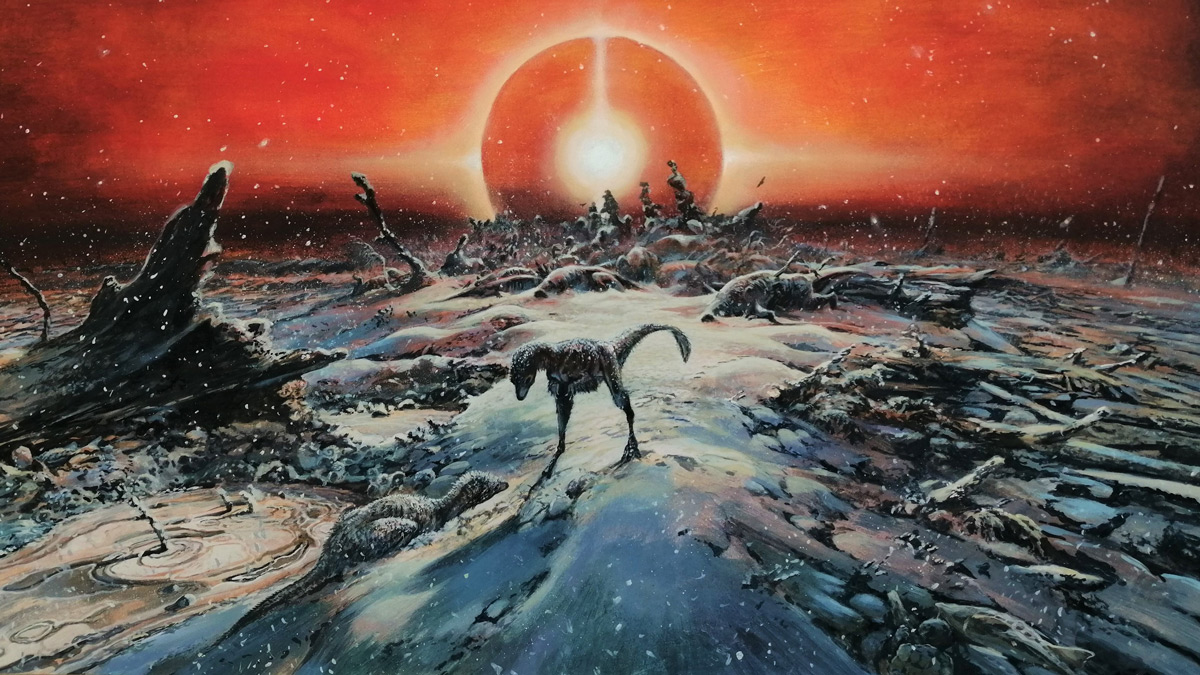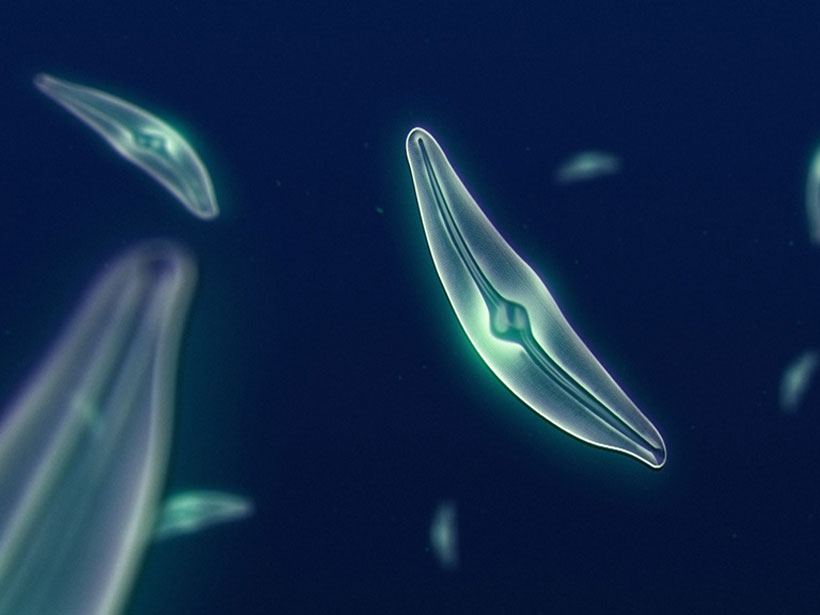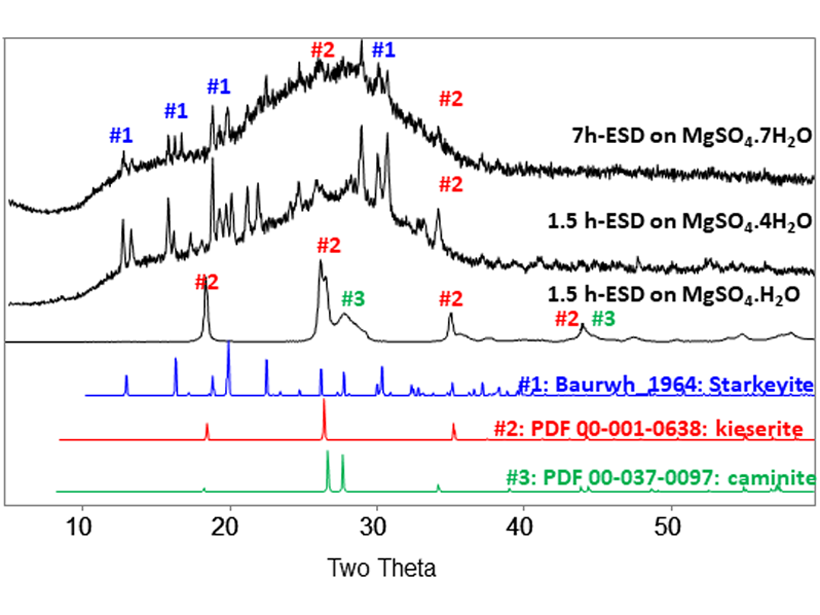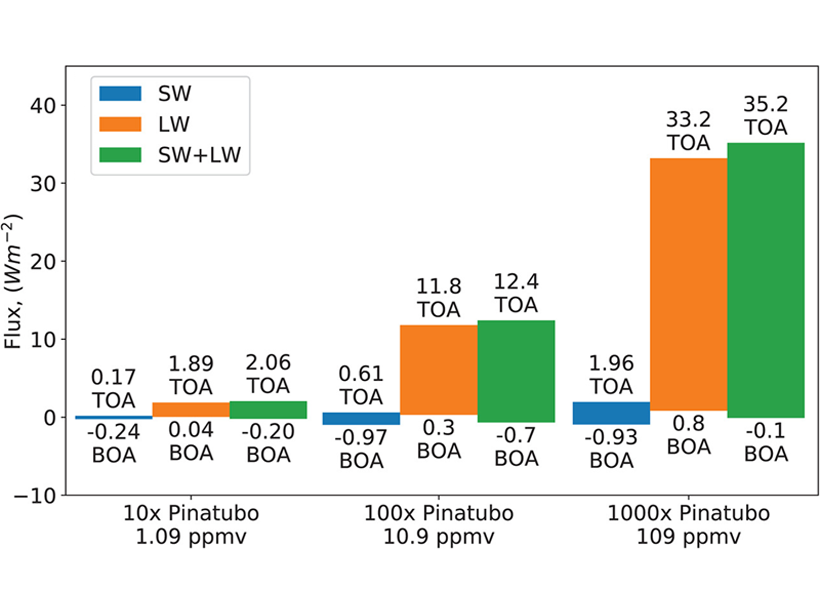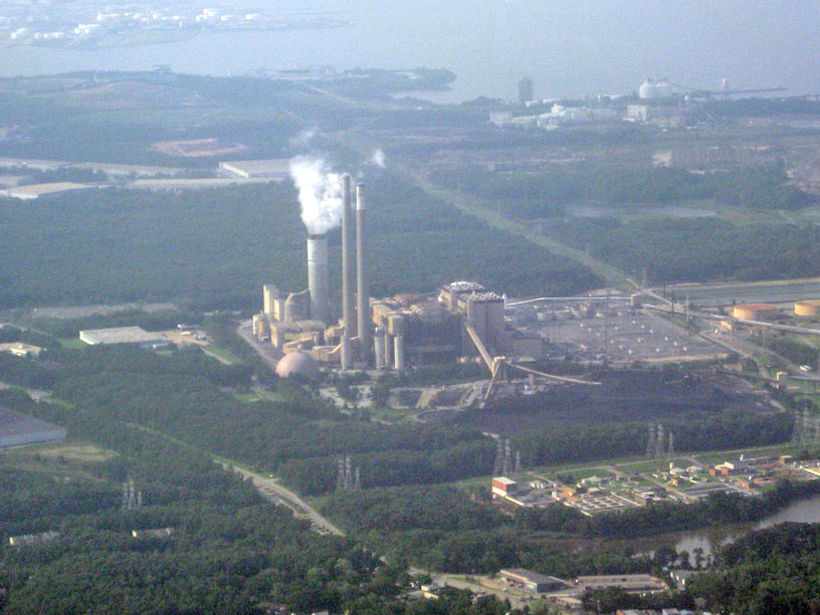New research supports the hypothesis that dinosaurs were done in by climate change after an asteroid impact kicked up a massive plume of sulfur gases that circled the globe for several decades.
sulfur
How Did Diatoms Evolve to Swap Zinc for the Toxic Metal Cadmium?
New network analysis suggests that zinc and cadmium sulfides weathered simultaneously in geological history, making cadmium a suitable substitute in photosynthetic pathways when zinc was scarce.
Martian Dust Activities Induce Electrochemistry
Amorphous materials generated from sulfur and chloride salts by electrostatic discharge in a Mars chamber suggest widespread electrical processes during dust activities.
The Overlooked Role of Sulfur Dioxide Emissions from Volcanoes
Volcanoes can warm as much as they cool. Prior simulations have neglected the important warming effects of sulfur dioxide emissions, making some results colder than they should be.
North American Wild Rice Faces Sulfide Toxicity
Researchers have developed a model to inform the regulation of sulfate levels in freshwater environments that are threatening the iconic plant.
Can Water Vapor Help Forecast When a Volcano Will Blow?
A widely used technique to monitor sulfur dioxide was tweaked to focus on water vapor at Peru’s Sabancaya Volcano. Results show that the volcano steamed up prior to its 2016 eruption.
Air Pollutant Plays Lesser Role in Climate Change Than Expected
Satellite data indicate that pollution control efforts that curbed levels of sulfur dioxide gas did not cause a major decrease in carbon dioxide absorption by plants.
Volcanic Ash Contributes to Climate Cooling
A new study shows that atmospheric ash reflects solar radiation months after volcanic eruptions.
Evaluating the Impact of Maryland's Healthy Air Act
Reducing emissions of short-lived gaseous sulfur pollutants from power plants had an immediate, local benefit, but controlling longer-lasting harmful particulate matter will require regional action.

